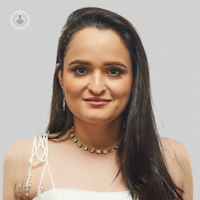The difference between Profhilo® and Polynucleotides
Written in association with:In recent years, injectable treatments have become a popular choice for people seeking non-surgical solutions for skin rejuvenation. Among these, Profhilo® and Polynucleotides are two notable options that target both skin ageing and skin health.
Dr Karla Orsine Murta Dias, leading aesthetic specialist, provides an expert insight into the difference between Profhilo® and Polynucleotides to help you make an informed decision if you are considering aesthetic treatments.

What is Profhilo®?
Profhilo® is an injectable treatment designed to remodel the skin’s structure. The main ingredient in Profhilo® is stabilised hyaluronic acid, a highly concentrated form of hyaluronic acid, which is a substance naturally found in the body known for its ability to retain to hydrate and retain moisture.
When injected into the skin, Profhilo® spreads evenly, providing deep hydration and stimulating the production of collagen and elastin, two essential proteins responsible for maintaining skin elasticity and firmness. As collagen and elastin are produced, the skin’s tone, texture, and vitality improve, and fine lines appear less pronounced, rejuvenating the quality and appearance of the skin.
Profhilo® is commonly used in areas of the skin that show signs of ageing, such as the face, neck, decolletage, and hands. The treatment is suitable for people in their late 30s and beyond who want to maintain youthful skin.
What are Polynucleotides?
Polynucleotides are a class of injectable treatments designed to regenerate and repair the skin at a cellular level. Polynucleotides are derived from DNA fragments or nucleotides, which are the building blocks of DNA.
When injected into the skin, polynucleotides stimulate cellular repair processes that repair and renew skin from within, regenerating damaged or ageing skin cells, reducing inflammation, and encouraging the production of collagen and elastin. Polynucleotides also have a strong antioxidant effect, helping to protect the skin from the oxidative stress that accelerates the ageing process.
Polynucleotides are often used to treat areas of the skin that have been damaged by sun exposure, ageing, or scarring. They can be applied to various parts of the face and body, such as the neck, decolletage, and hands, as well as acne scars and stretch marks.
How many sessions are typically required for each treatment?
For Profhilo®, most patients undergo 2 sessions spaced 4 weeks apart. After the initial sessions, maintenance treatments are typically recommended every 6 to 12 months to maintain results.
Polynucleotide treatments usually require 3 to 4 sessions, depending on the extent of skin damage or ageing, which are typically spaced about 2 to 3 weeks apart. After the initial sessions, follow-up treatments are generally recommended every 12 to 18 months, depending on the skin’s condition, for ongoing skin regeneration.
Which treatment delivers faster results?
Both Profhilo® and Polynucleotides deliver noticeable improvements, but Profhilo® tends to show faster results. Most patients notice improvements in skin hydration, texture, and elasticity after just 1 or 2 sessions. Results can last anywhere from 6 to 12 months, depending on individual factors such as age, skin condition, and lifestyle.
In contrast, Polynucleotide treatments tend to show results more gradually, as they focus on deeper regeneration and repair of the skin. Most patients start to notice improvements in skin texture and tone after 2 or 3 sessions. Results can last between 12 and 18 months. However, since the effects of polynucleotides are cumulative, patients see ongoing improvements even after completing the treatment course.
Can Profhilo® and Polynucleotides be combined?
Yes, Profhilo® and Polynucleotides can be used together in a combined treatment plan. This combination can help to achieve optimal results in terms of both skin quality and skin health, where Profhilo® provides immediate hydration and elasticity, while Polynucleotide treatments target deeper skin repair and regeneration.
If you would like to book an appointment with Dr Karla Orsine Murta Dias, head on over to her Top Doctors profile today.


